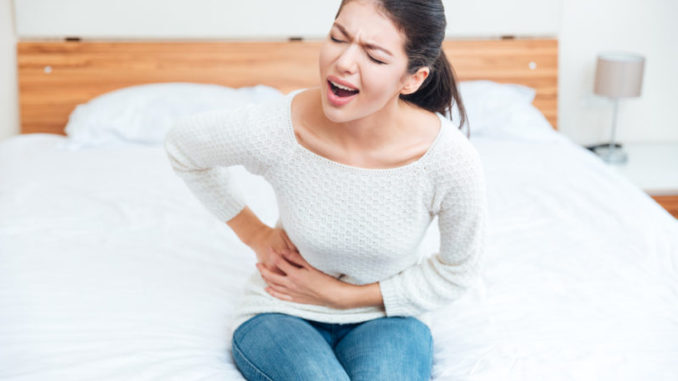
One of the most important organs in your body, the kidneys are responsible for purifying and maintaining the water balance in the blood. The kidneys do a lot more than just purifying the blood and make urine, they also also produce hormones, eliminate toxins, and help to regulate the levels of certain minerals such as phosphate and calcium in the body.
Kidney diseases are often referred to as “the Silent Diseases” as the damages to the kidneys can often go unnoticed for years. The kidneys can still function with as little as 20% of their capacity. Early detection and treatment of kidney problems are the keys to avoiding kidney failure. But then, prevention is always better than the cure.
Here are 15 common habits that can lead to kidney damage:
1. Not Drinking Enough Water
The recommended amount of water one should take is about 8 ounces – that’s about 2 liters. This also includes the tea, coffee or juices that you take in during the day.
However, based on your work profile and environment, you may need to drink more amount of water. For example, hard labour in hot sun will require much more amounts of water to remain hydrated.
Another yardstick is to check the colour of your urine. If it is yellowish, then you need to increase your water intake.The yellowish colour of urine is due to pigment urochrom which gets released when you are dehydrated.
2. Delaying The Call of Nature

The urine contains a lot of toxins and waste materials which are waiting to be thrown out of the body. This can cause the bacteria breeding in urine to multiply.
Retaining the urine regularly and delaying the call of nature will cause breeding of harmful bacteria which can infect kidneys or the urinary tract. This may lead to kidney stones or even kidney failure over time.
3. Too Much Salt In The Food
Try to reduce your salt intake. The average requirement of salt is only 5 gms in a day. Taking in more than this over time is known to be harmful for the kidneys.
The sodium gets readily absorbed into the blood and excess amounts are excreted by the kidneys. So an excess intake of salt will lead to excessive strain for the kidneys.
4. Too Much Sugar Intake

Processed sugar has emerged to be one of the biggest health hazards for human beings as per the latest studies.
Remember that all juices, drinks, milkshakes, etc. contain excess amounts of added sugar. Bottom line – just avoid sugar as much as possible.
5. Regular Intake of Painkillers
Research shows that regular use of painkillers deteriorate the proper functioning of kidneys. Prolonged use of over-the-counter painkillers can lead to chronic kidney disease or even acute renal failure.
6. Not Getting Enough Sleep
Kidney tissues get renewed during night, so prolonged sleep interruptions are damaging to the kidneys. Sound sleep of about 7 to 8 hours daily is important for our overall health and the health of our kidneys.
7. Consumption Of Alcohol In Large Amounts

Consuming a glass of alcohol, especially wine, once in awhile is good for health. However regular or excess intake of alcohol has a damaging effect on the kidneys.
Alcohol is immediately absorbed by the body. Large amounts of alcohol can put severe stress on your liver and kidneys. It leads to deposition of uric acid in the renal tubules of the kidneys.
8. Consumption of Too Much Protein
Taking in too much protein, especially red meat in your diet increases the metabolic load on your kidneys and are therefore harmful to the kidneys.
A lot of nitrogen byproducts are created during protein digestion. These byproducts are excreted from the blood by the kidneys. Excess intake of proteins can also lead to the formation of kidney stones.
9. Smoking Cigarettes
Smoking increases blood pressure and heart rate. It also narrows the blood vessels and reduces blood flow to the kidneys. Therefore, it not just leads to the loss of kidney functions, it can also accelerate and worsen existing kidney diseases.
10. Consuming Excess Caffeine

Excessive intakes of caffeine can cause high blood pressure and excess strain on your kidneys. This can seriously damage your kidneys overtime.
According to a study published in Kidney International, excess caffeine consumption has shown to increases calcium excretion in urine – leading to the formation of kidney stones.
11. Vitamin And Mineral Deficiencies In Diet
A diet rich in fresh fruits and vegetables is vital to the overall health of kidneys and their functioning. Risks of formation of kidney stones and kidney failure is higher when there are vitamin and mineral deficiencies. Adequate intake of magnesium and vitamin B6 are very important in reducing the risk of kidney stones.
12. Intake of Excess Water
Too much water intake is also considered harmful for the kidneys. The blood becomes diluted when you drink too much water in a short period of time.
When the kidneys are unable to filter the blood fast enough to maintain the proper sodium balance, it creates a medical condition known as hyponatremia and this causes many symptoms including fatigue, nausea, vomiting and frequent urination. Overhydration may even lead to death.
13. Regularly Ignoring Common Infections
Take adequate rest when you are sick. People with kidney diseases often have a history of not resting when they are sick. The bacteria or viruses that cause these common infections will damage your kidneys overtime if timely treatment is not carried out.
14. High Blood Glucose Levels

Excess amounts of glucose in the blood is damaging to the kidneys. It’s a common knowledge that the risk of kidney failure is higher in diabetic patients.
Too much blood gets filtered by the kidneys when there is high levels of glucose in the blood and this puts an extra pressure on the nephrons. Overtime, they start to leak and this vital filtering system breaks down.
15. High Cholesterol Levels
Keep the cholesterol levels in the safe ranges. High cholesterol in the blood in addition to risk of heart diseases, can also be damaging to the kidneys.
The recommended management of cholesterol for chronic kidney failure is similar to those suffering from heart diseases. You must make lifestyle changes that lead to healthier diets and exercise routines, to lower LDL to below the recommended levels of 100 mg/dl and to increase HDL to greater than 40mg/dl.
Read More: The Most Effective and Natural Home Remedy for Kidney Stones
